Colonialism And What Indigenous People Mean By #decolonize
"It is astonishing the lengths to which a person, or a people, will go in order to avoid a truthful mirror." ~ James Baldwin
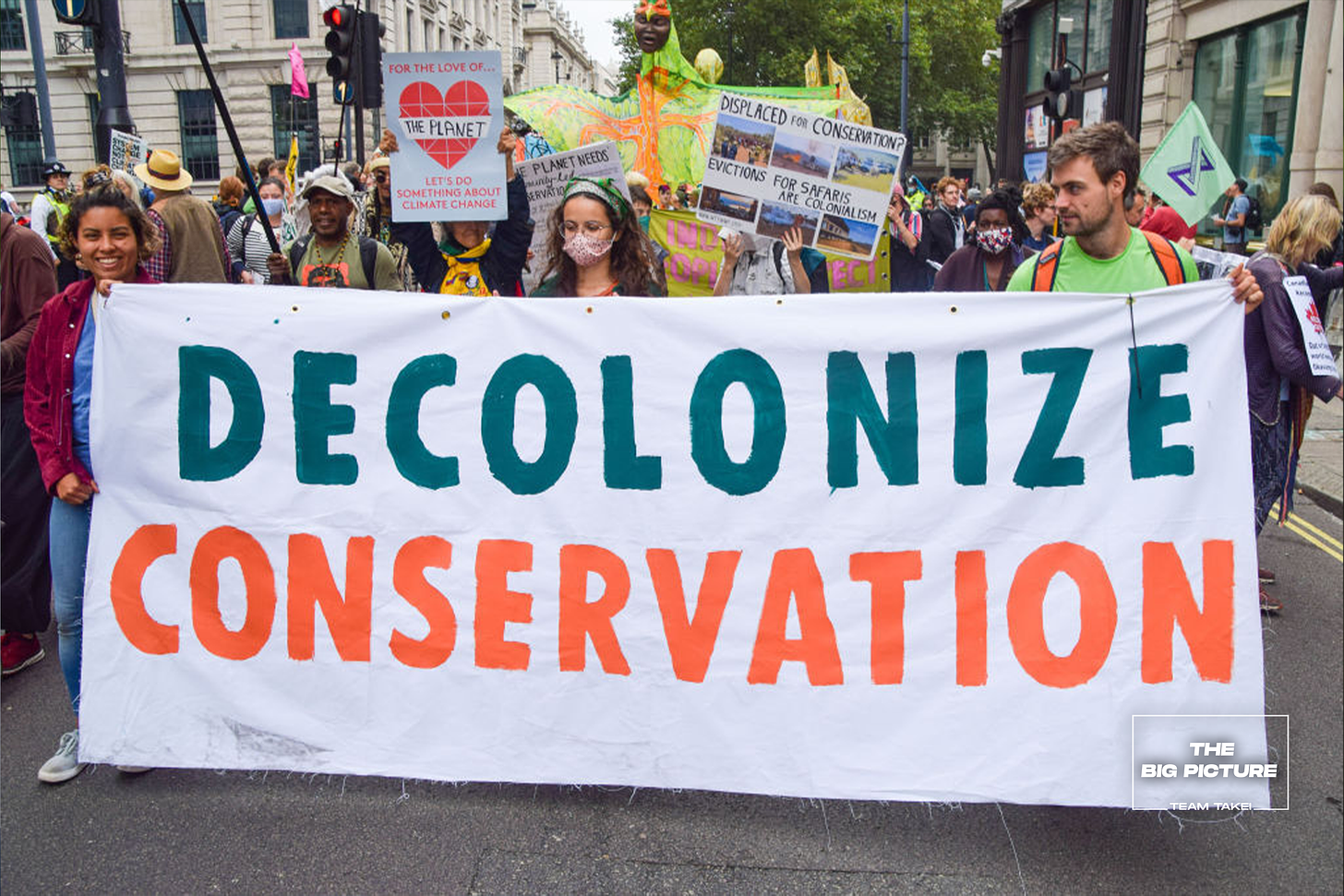
In the 2000s, First Nations and other Indigenous North Americans used the hashtag #IdleNoMore and the power of social media to organize across geographic divides and colonial borders—it's important to note all borders in the Americas were established by the colonizers.
Several elections and policies were decided by Indigenous involvement and activism. For many of these activists, the logical next step was to advocate for “decolonization.”
If you search social media in 2024, you'll see activists and allies—often linked to conservation and environmental justice—use the hashtag #decolonize.
But What Do Indigenous Peoples Mean By Decolonization?
The British Museum in London is famously full of art and artifacts looted from around the world during the British Empire's invade and subjugate period that lasted into the late 20th century.
Part of decolonization efforts in the United States involves the repatriation of Indigenous remains and stolen antiquities to their tribal nations. It is heartbreaking to watch your stolen history auctioned off to the highest bidder.
The Smithsonian Museum in Washington D.C. once housed the stolen skeletal remains of over 30,000 individuals “overwhelmingly acquired without the consent of the deceased or their family members.”
In a colonized society, if I dig up a colonizer's Great-Grandmother and steal her possessions and bones, it's a crime. But if a colonizer digs up and steals from my Great-Grandmother, it's science.
Passage of the National Museum of the American Indian Act and the Native American Graves Protection and Repatriation Act (NAGPRA) work to right these wrongs. To date, the remains of over 5,000 Indigenous peoples have been repatriated to descendent communities by the Smithsonian.
For many countries subjected to imperialism or colonized by mostly European nations, decolonization began with becoming independent of the colonizing country through achieving statehood.
Their decolonization continues through the ongoing process of uprooting cultural, social, psychological, economic, environmental, and other impacts left over from their colonization.
However, colonization differs from imperialism and is more difficult to recover from.
Imperialism occurred when a foreign power exerted dominance over another country, with or without the need for a physical presence, while not replacing the existing populace.
The beginning of recovery from imperialism comes with the removal or retreat of the foreign power. While imperialism had deep, lasting impacts on societies, the power structures established after independence were composed mostly of peoples Indigenous to those countries.
However, the United States, Canada, Australia, and other places experienced settler colonialism, not imperialism.
This is a form of colonialism where Indigenous peoples are systematically exterminated and replaced by settlers from colonizing nation(s) which then form new permanent societies.
Colonization
The United States mythos loves to talk about the success of their “melting pot,” but for BIPOC it's a demand to conform to a White, Christian, heteronormative, binary gender model.
Until recently, the United States failed to recognize the White drag BIPOC were forced into in order to achieve any success in American business or academia. Hair and clothing was only professional if it was the White ideal.
Indigenous men had to cut their hair, Black men and women had to straighten theirs and never wear their traditional, protective styles like locs, braids or Bantu knots. Suits and ties, loafers and pumps replaced ribbon shirts, ribbon skirts and moccasins as acceptable attire.
Decolonization lets all cultures be their authentic selves instead of a copy of Whiteness.
In the United States, independent statehood was achieved from the British Empire by White settlers with assistance from Indigenous nations like the Mohican, Oneida, Tuscarora, and factions of the Cherokee.
But this victory only deepened colonialism, rather than beginning independence and autonomy for the still living Indigenous populations.
For colonized countries, decolonization involves a deeper, more complex dismantling of structural power and privilege granted by the colonizers to the colonizers.
In these countries, White supremacy, White nationalism and Christian nationalism are direct results of their colonization.
Take education for example.
All reference points are centered on White colonizers. The histories of other ethnic or racial groups are taught only as they interact with the White populations.
Western Civilization classes in the United States focus on ancient Greece and Rome, not China, India or Japan. Then American history begins with colonization, not the ancient Americas.
It's a skewed worldview designed to promote the idea of White superiority over all others.
How does that affect people in real life today?
Colonialism Warps Perceptions
In college, I was president of the international students group. Unlike many universities, our group included students from all parts of the world—Indigenous Americans, First Nations Canadians, United States citizens, exchange students—instead of just “foreign” students.
One of my pet projects was offering our members as speakers for public education. We spoke before civic groups, in schools, and did a monthly food and cultural event on campus.
I had the opportunity to share my culture with kindergarten classes up to high school seniors, college students studying American History, and civic groups with adults of all ages.
In my speeches, I always began with the same question:
“How long were Indigenous people in the Americas before Columbus arrived?”
The best answer I received was from a high school senior who guessed 500 years. The most common answer was 100 years, with a few people guessing just 50 years.
Current anthropological research estimates the presence of hominids in the Americas began between 35,000 to 60,000 years ago.
The last ice age land bridge theory—aka Bering Strait Theory—was disproved years ago by the discovery of artifacts predating the last ice age. But people still throw it out to derail discussions of Indigenous rights because “they're immigrants too.”
Every single audience I spoke to knew 1492 was the year Columbus arrived, but didn't know he never set foot outside the Caribbean and coastal Central America. Every audience knew July 4, 1776 was the birth of the United States.
But Indigenous peoples throughout North, Central and South America only arrived in 992 A.D. at the most in their minds.
So why are Americans so ignorant about their own nation's history, but well-versed in the history of European imperialism and colonization?
At some point, it was likely deliberate misinformation.
If the Indigenous peoples are just immigrants too, they have no legitimate claim on the land or resources. And acknowledging systematic, government-sanctioned genocide is so unpleasant—it might make colonizers feel bad.
Can't we just say they were uncivilized, war-mongering, Godless savages who tried to kill us and kidnap our women and children so we had to defend ourselves?
But at this point, our myths and legends—lies—of White American exceptionalism are treasured revisionist history people cling to like Confederate statues and a genocidal Italian Catholic extremist hoping to finance more crusades to the Holy Land.
Decolonizing begins with replacing the lies with accurate information about our nation's past—warts and all—and centering it on the land we live on, not Europe.
A Eurocentric history of the United States excludes and marginalizes our Asian, African, Oceanic, and Indigenous citizens. It “others” them and instills a non-Whites are foreigners mindset which led to violence against Asians during the pandemic.
America Through A Decolonized Lens
A few years ago, I received a frantic phone call from a friend's daughter. She was graduating high school and her classmate was being told she couldn't march or participate in the graduation ceremonies.
Why?
She wanted to wear her deceased mother's eagle feather in her hair. The classmate was Mi'kmaq—one of the Wabanaki tribes upon whose land I live in Northern Maine.
I had a meeting with the school principal to discuss the graduation “dress code” the student's eagle feather violated. It was a fight he'd lose in court as the right of Indigenous students to wear eagle feathers, beadwork, and regalia had already been decided in the courts and accepted by the Department of Education.
But the principal didn't care about legality or precedent and this student was graduating in a week which left no time for a court case.
So I let him tell me about their dress code: dress shirts, ties, slacks and dress shoes for boys and dresses, blouses and skirts or dress slacks with heels or flats for girls. No jeans, no tshirts, no sneakers, no sandals. No hair touching the collar for boys, neatly styled hair for girls.
He then boasted of helping “less fortunate students” get the necessary clothing at local thrift shops. He added that other students paid tribute to deceased loved ones with watches, lockets or barrettes in their hair.
I asked him about braids with beads, locs, Indigenous men with long plaited hair, ribbon shirts with bolo ties, Dhoti, sari, kimono, dashiki, Isiagu, hanbok, moccasins with ribbon skirts.
These are all formal attire, just not traditional White formal attire.
Did he know his dress code was inherently racist? Was White nationalism the point of the dress code?
The student was allowed to wear her eagle feather.
For my own people, decolonization involves unlearning Christian, patriarchal values instilled with an iron fist in mandatory boarding schools.
Our own history has been warped by colonization to introduce foreign concepts of patriarchy, patrilineal power, misogyny, homophobia, transphobia, subjugation of other races, and a culture based on acquisition instead of subsistence.
Much of North America was populated by matrilineal, matriarchal nations. But European invaders saw our cultures through their lens of patriarchal monarchies and applied the same labels to us.
Chiefs were viewed like kings and suddenly their daughters were princesses.
Europeans had no reference point for a matriarchy, so in their minds it would mean women subjugating men in the way their patriarchy subjugated women. Today some Indigenous men argue we were only matrilineal, but still patriarchies because we had chiefs.
The power that comes from misogyny and hate for the marginalized is alluring within our own culture.
To paraphrase President Lyndon Johnson:
“If you can convince the lowest White man he's better than the best [POC] man, he won't notice you're picking his pocket. Hell, give him somebody to look down on, and he'll empty his pockets for you.”
Indigenous peoples are not immune to that ego boost.
After colonization, some tribes chose to own enslaved Africans and fought on the side of the Confederacy during the Civil War. Tribes with historical conflicts chose to go from the customary occasional skirmishes to aiding the colonizing forces in genocide and eradicating their rivals.
Today, our men need to turn away from the misogyny they learned and return to the old ways when the council of women was always consulted on tribal matters and could overturn any decisions made by the council of chiefs. Domestic violence and erosion of the family unit in Indian Country is rooted in a loss of respect for our matriarchs.
We also need to embrace and exalt our Two-Spirit relatives again. Hatred for them wasn't our way.
Same-sex and same-gender unions equal to any other union existed far longer in this land before colonizer laws attacked their right to exist.
A transgender person is a blessing from Creator—an insightful and uniting bridge between the genders.
How Do We Decolonize?
My immediate family members—except for my Father—all had mental health therapy at some point in our lives. One criticism we all received was our lack of friends outside our own family.
My Sisters, my Nibling, and I all have great fun together. We've traveled and vacationed together. Our cousins live similarly.
Why is our traditional family culture considered a character flaw?

The push to socialize outside of family is a colonizer mindset.
Extended family as a primary source of leisure time activities is common in many cultures. Living “at home with your parents” up to and even after marriage is accepted and even expected.
But in the dominant colonizer culture of the United States, such traditions are mocked, shunned, and deemed a character flaw even by professional therapists.
If changes are made to center United States history on the history of the land that is now the United States—beginning with the Indigenous peoples’ millennia of history and not with the arrival of European invaders and colonizers—I believe most attitudes will shift naturally in the same way they were warped before.
Teach an accurate history stripped of the propaganda that got a disgraced megalomaniac a national holiday, the religious extremists on the Mayflower revered status for another holiday, and all the other misinformation.
The arguments against such changes center on the potential for “hurt feelings” of White students. However White students aren't leading this charge. Many of the White nationalists behind such movements don't even have children in public schools.
To them, we must say that for the last century or more, Asian, African, and Indigenous children's feelings didn't matter.
So suck it up, buttercup.
Once attitudes shift, discussions of equity, inclusion, representation, and Indigenous autonomy will make sense to an educated, informed majority. A minority of people will refuse to ever be reached, but that's OK.
It will take time, education, patience, and White allies.
Do you know who your school board members are? Do you pay attention to their actions?
Decolonizing our public education system is step one on this journey.
~~~~~~~~~~
In addition to writing for The Big Picture, Amelia writes






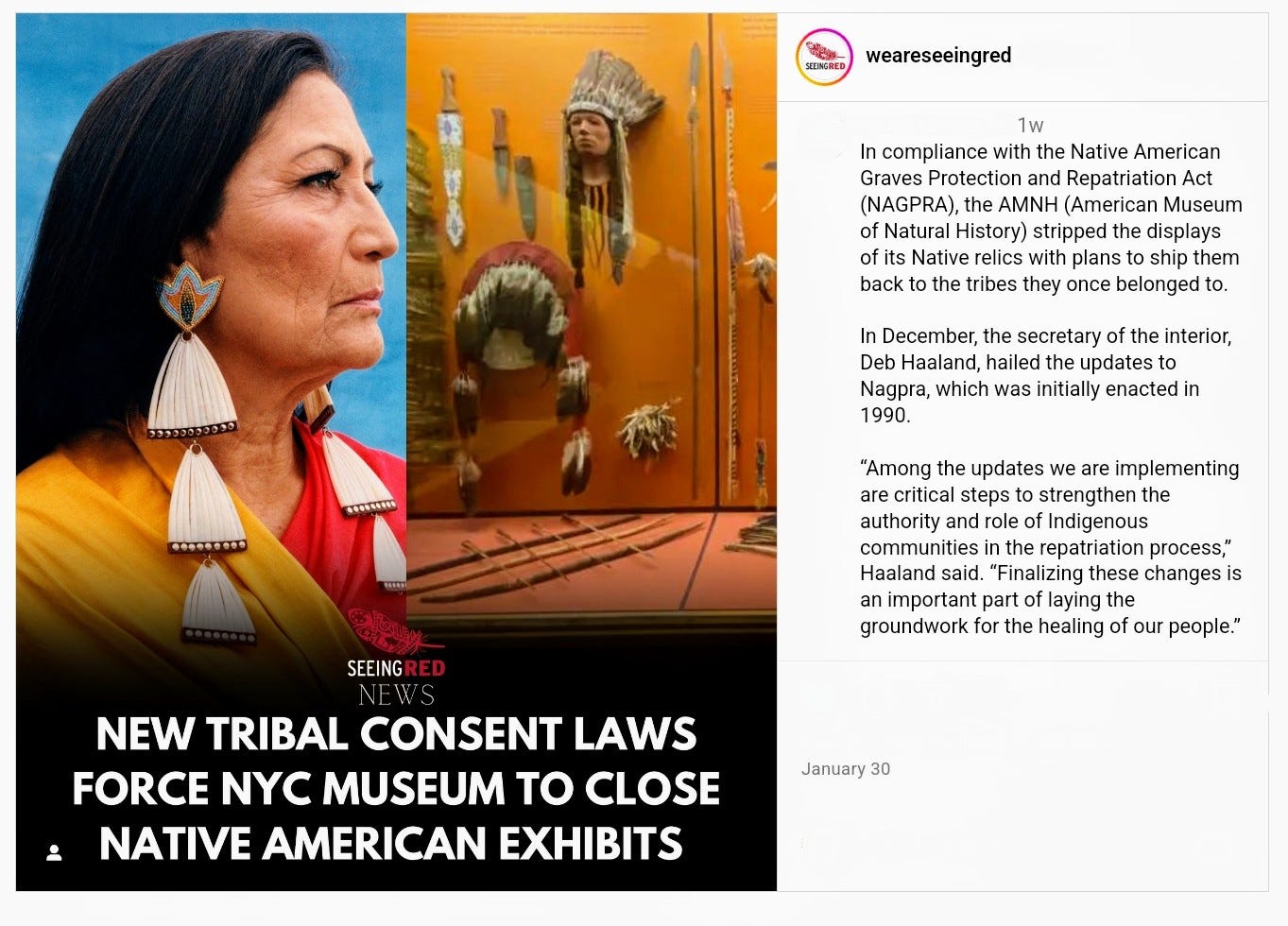
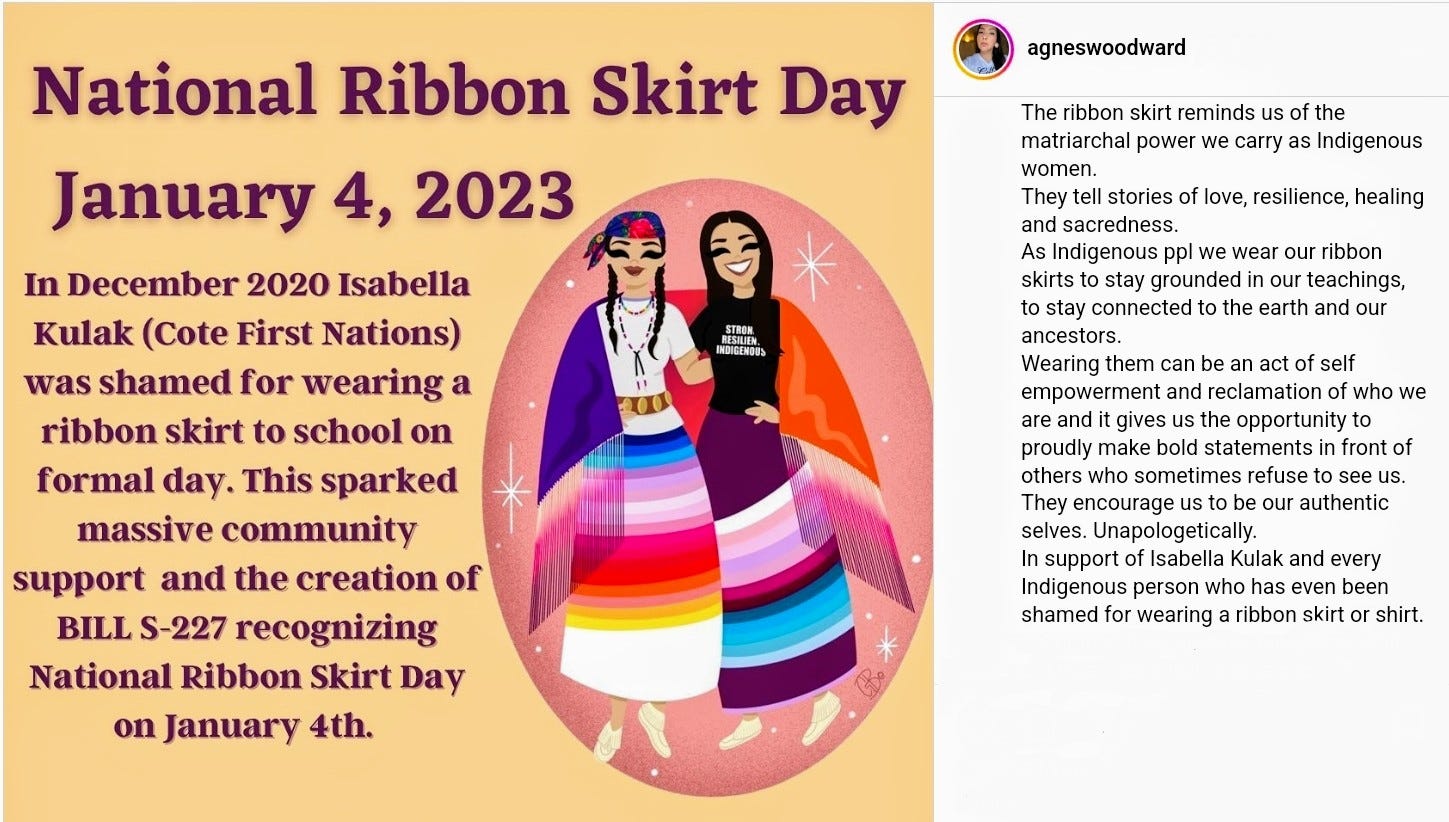
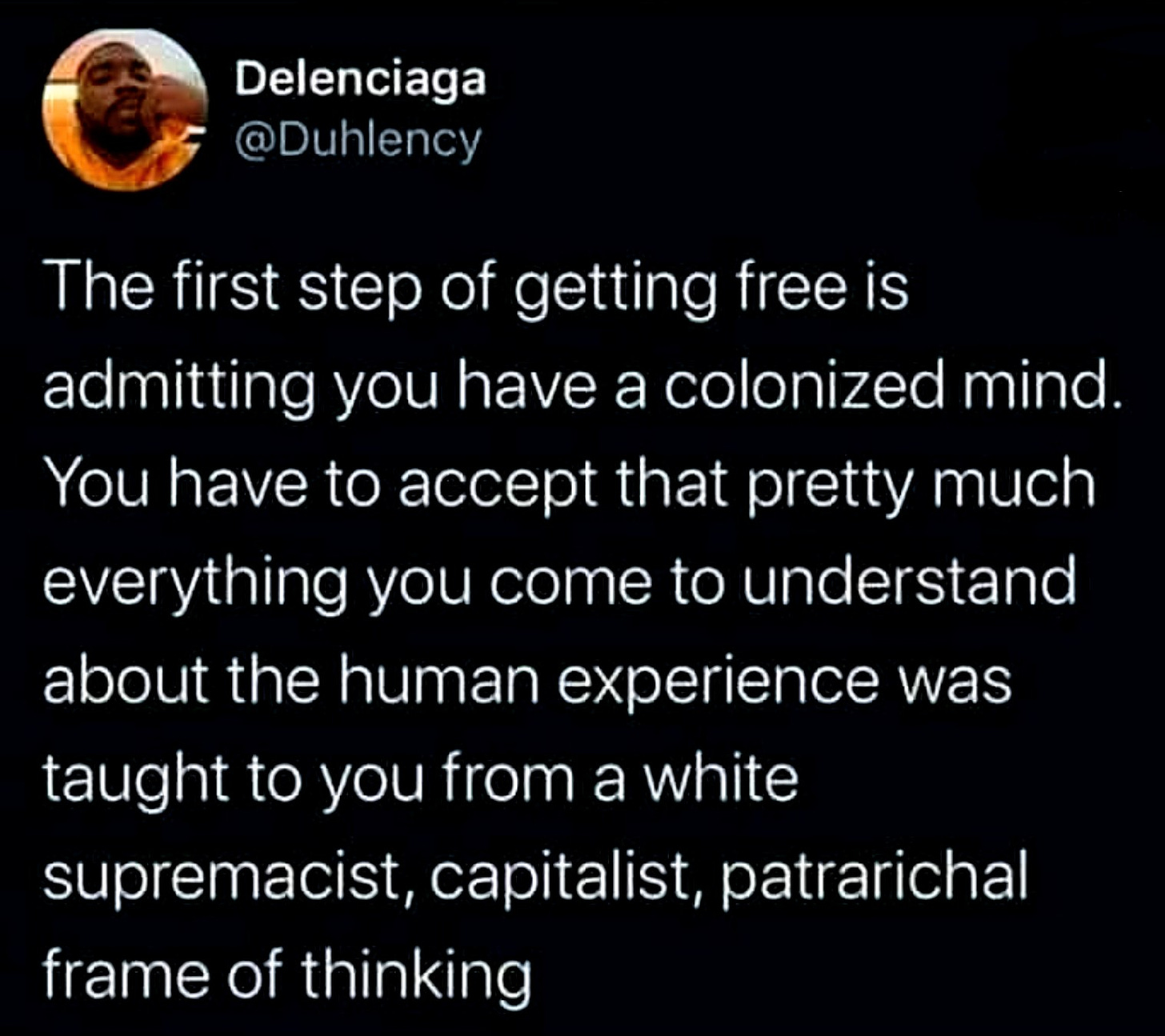
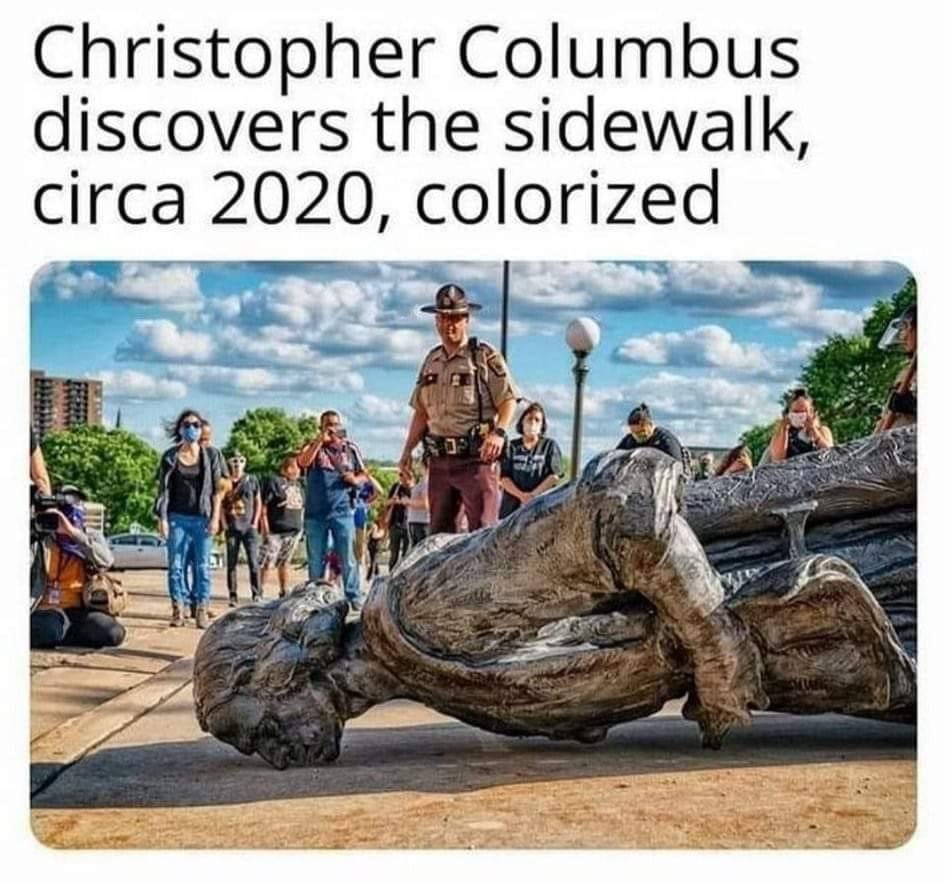
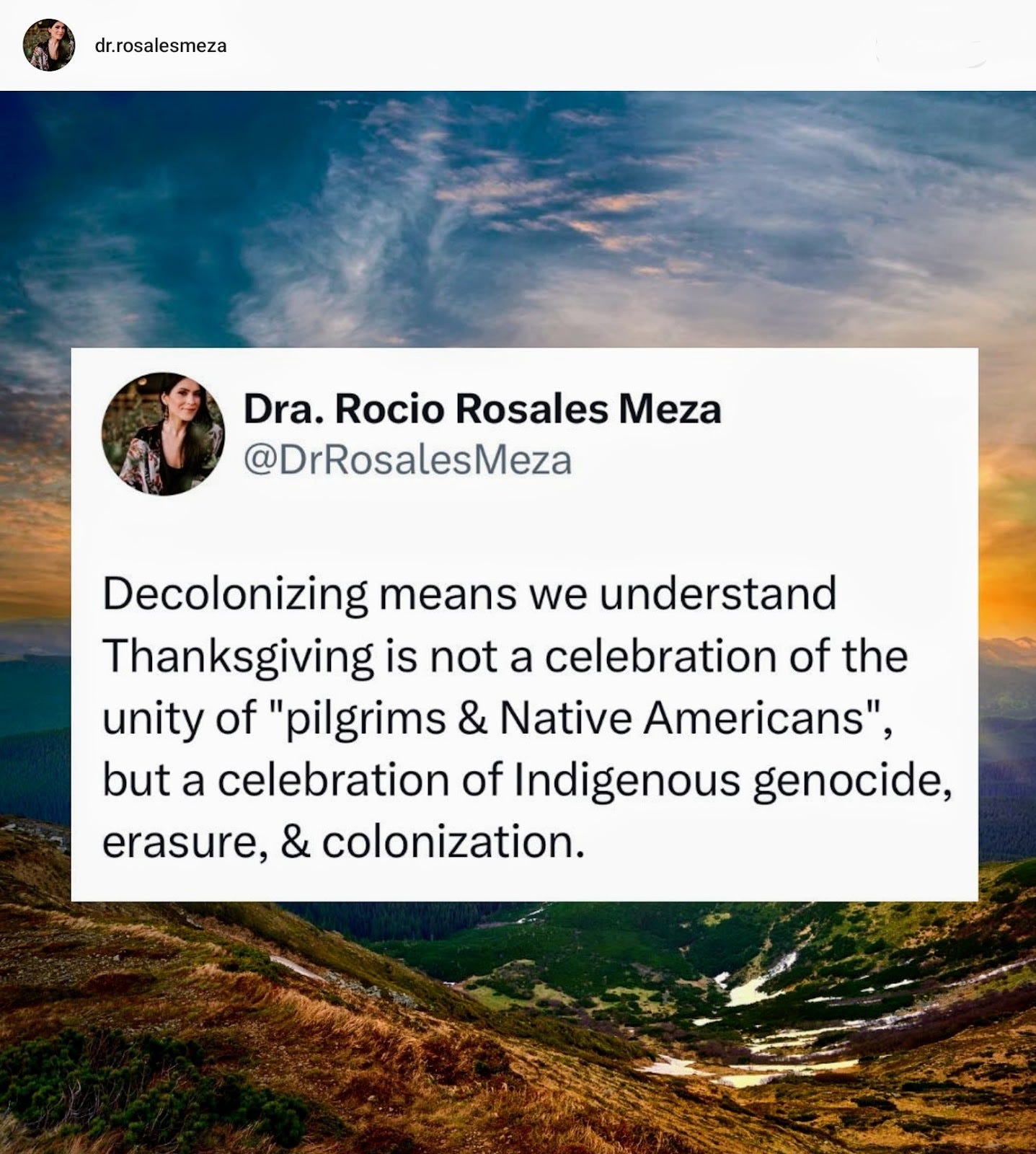
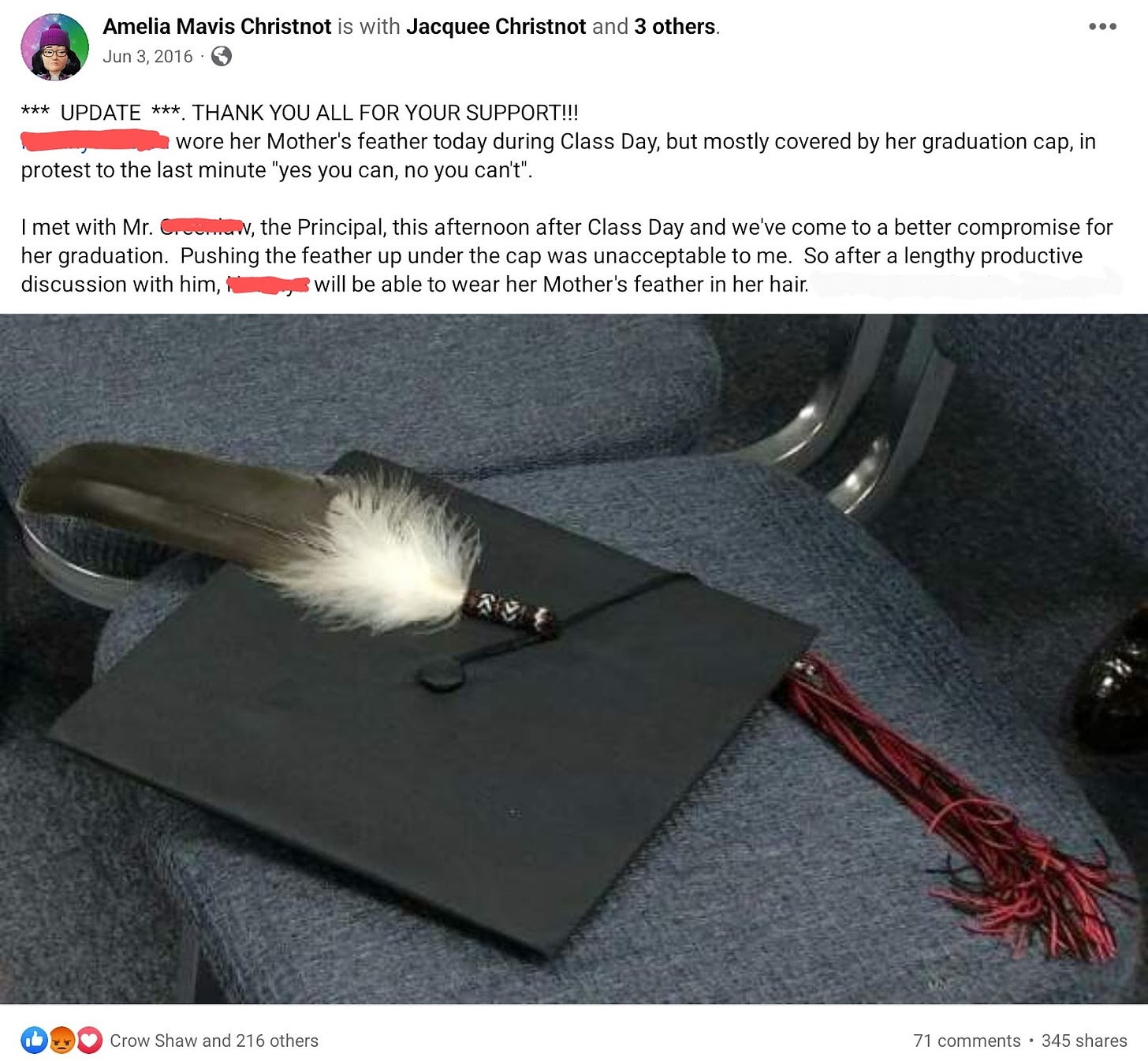
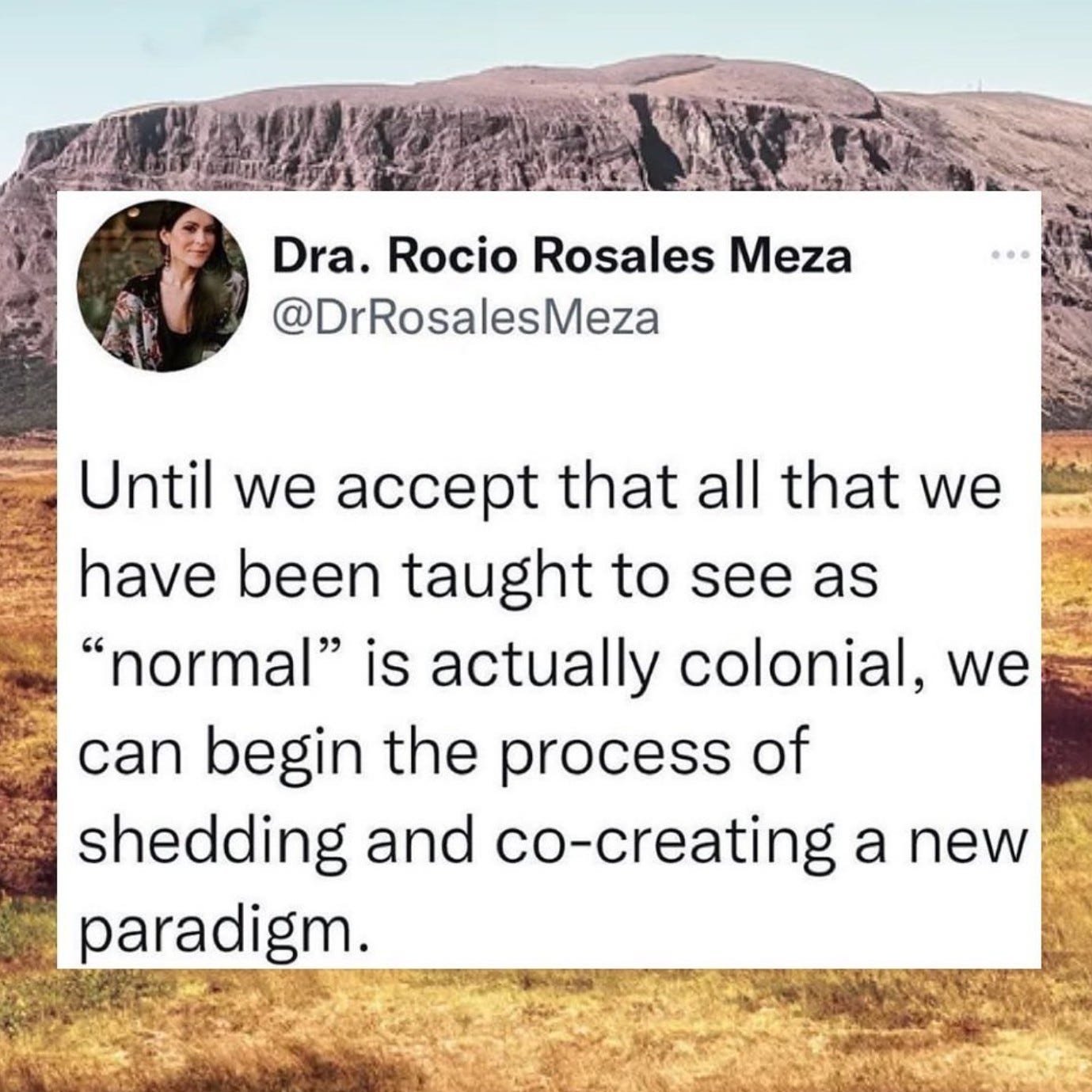
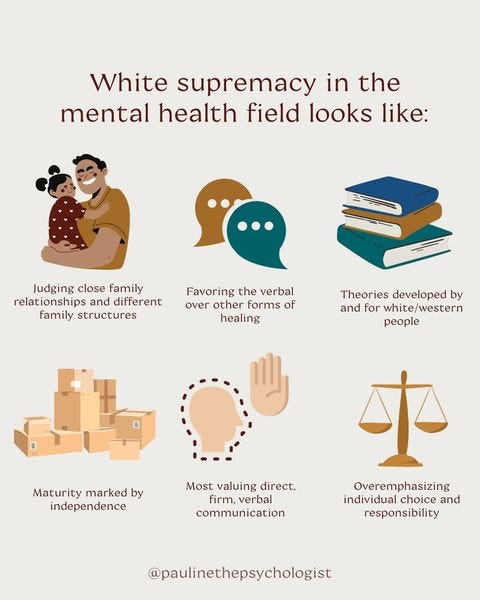
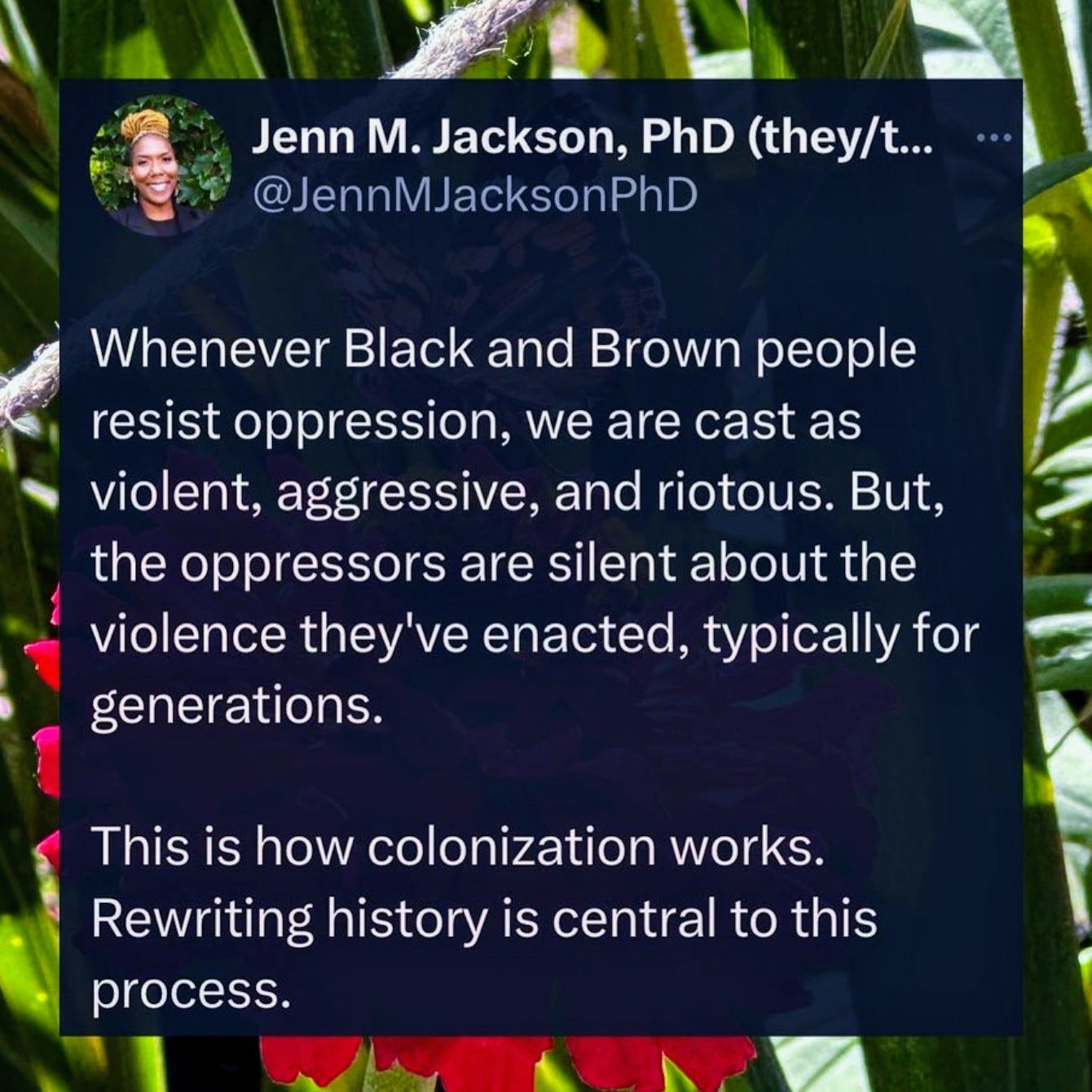
Beautifully written. "Not everything that is faced can be changed; but nothing can be changed until it is faced." Canadian and American schools have failed to even look towards facing it.
I had never thought of the world of therapy as Anglicized, but you're right! And dress codes in schools??? Mind. Blown! This was an eye-opening article for me. Thank you for sharing!